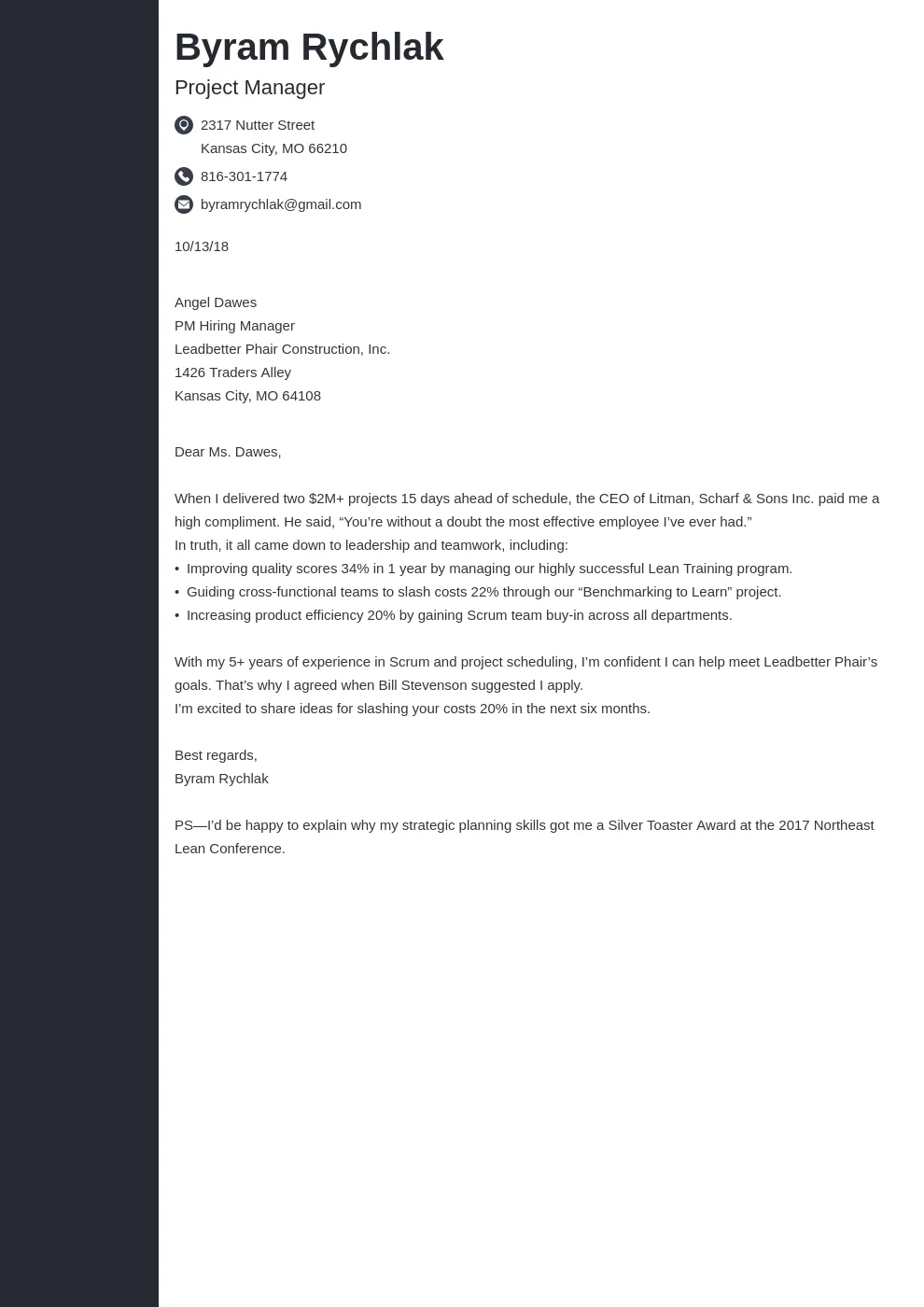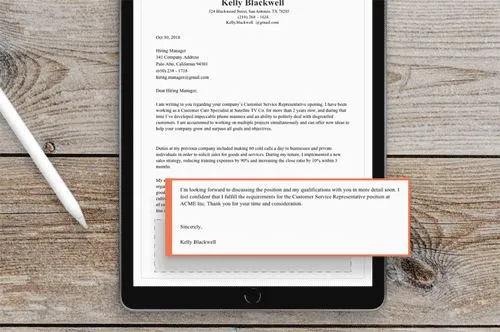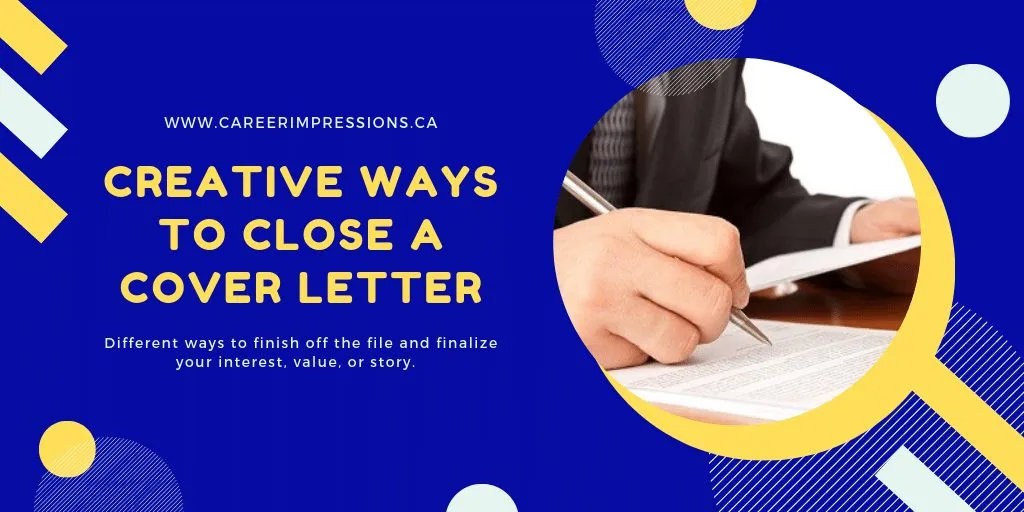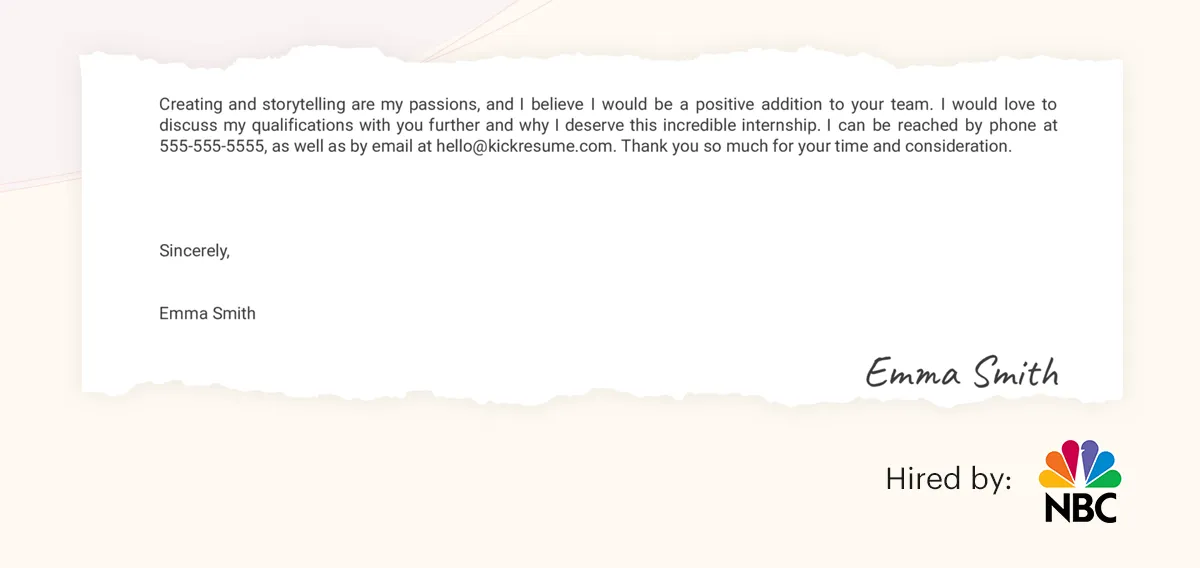Understanding Cover Letter Importance
Your cover letter is often the first impression you make on a potential employer, and it’s your opportunity to showcase your personality, skills, and enthusiasm for the role. A well-crafted cover letter can significantly increase your chances of getting an interview. It’s more than just a formality; it’s a critical tool to demonstrate why you’re the ideal candidate. It allows you to elaborate on your resume, provide context to your experiences, and highlight how your qualifications align with the job’s specific requirements and the company’s values. It gives you the space to tell your story, explain career transitions, or address any gaps in your employment history. A compelling cover letter proves you’ve done your research, understand the company, and are genuinely interested in the opportunity. Mastering the art of writing a strong cover letter, including the crucial closing, can set you apart from other applicants.
Why a Strong Closing Matters
The closing of your cover letter is your final opportunity to leave a lasting positive impression. It’s where you reinforce your interest in the position, reiterate your key qualifications, and prompt the hiring manager to take the next step. A weak or generic closing can undermine the impact of your entire letter, while a strong one can compel the reader to contact you. The closing is not just about saying goodbye; it’s about strategically ending your letter with a clear call to action. It’s your last chance to convince the hiring manager that you are enthusiastic and prepared to take the next step. Think of it as the final persuasive pitch that solidifies your candidacy and moves you closer to an interview. Properly executed, a powerful closing makes it easy for the hiring manager to visualize the next steps, whether it be scheduling an interview or contacting you for further information.
Avoid Common Cover Letter Mistakes

Several common mistakes can weaken your cover letter, especially in the closing. One of the most frequent errors is using a generic closing that lacks personality or specificity. Phrases like “Thank you for your time and consideration” are acceptable but often fail to differentiate you from other applicants. Another mistake is neglecting to tailor your closing to the specific job or company. A closing that could apply to any position shows a lack of attention to detail and a lack of genuine interest. Typos and grammatical errors are critical mistakes. They instantly undermine your professionalism, suggesting a lack of attention to detail and a lack of respect for the hiring manager’s time. Similarly, omitting a call to action or not including your contact information are critical blunders; always provide clear instructions on how the hiring manager should follow up with you.
Weak Closing Phrases
Certain closing phrases can come across as uninspired, insincere, or even passive. Phrases such as “Hoping to hear from you soon” or “Looking forward to your response” are overly passive. They don’t actively encourage the hiring manager to take action. Closings that are too formal or stilted can also feel disconnected, especially if the rest of your letter has a more personal tone. Phrases like “I remain, sincerely” might seem outdated. Generic closings, such as “Thank you for your consideration,” are often considered weak because they don’t demonstrate a strong interest or provide a compelling reason for the hiring manager to contact you. It’s essential to avoid passive language and aim for closings that are proactive and show a genuine enthusiasm for the opportunity and a strong commitment to the role.
How to Choose the Right Closing
Choosing the right closing depends on the context of the job, your relationship with the hiring manager (if you have one), and your overall tone. If you’ve had prior communication with the hiring manager or have a personal connection, a more informal closing might be appropriate. If you’re applying for a formal position in a conservative industry, a more traditional and professional closing is advisable. Always consider the company culture; a closing that fits the company’s brand and values will demonstrate your understanding of their culture. The best closing is one that is authentic to your personality and voice. It should reflect your genuine interest in the role and your confidence in your qualifications. Think about what you want the hiring manager to remember about you and tailor your closing to reinforce that message.
Tailoring Your Closing to the Job

The most effective closings are always tailored to the specific job. Before writing your closing, carefully review the job description and the company’s website. Identify the key skills and qualities the employer is seeking, and subtly mention them in your closing to directly address the employer’s needs. If the job description highlights a particular project or skill, briefly mention your related experience or the potential value you could bring to that area. For instance, if the job emphasizes project management, you might end your letter with a statement that reinforces your abilities in this area. By demonstrating you understand the company’s needs and how you fit those needs, you’ll show that you are a thoughtful and prepared candidate. Personalizing your closing demonstrates that you have done your homework and that you genuinely want the job.
Highlighting Your Key Skills
In your closing, it’s often a good idea to briefly reiterate your key skills and how they align with the job requirements. This is your last chance to remind the hiring manager of your most valuable qualifications. Instead of simply listing your skills, connect them to the specific needs of the role. For example, if the job description mentions a need for strong communication skills, you could close by saying, “My strong communication skills and my experience in X will enable me to excel in this role.” If you have specific accomplishments related to the job, you can highlight them in your closing. For example, you could summarize how you helped achieve a significant outcome in a similar role. Briefly mentioning your accomplishments not only shows your abilities but also adds more weight to your application. Ensure that the skills you choose to highlight are most relevant to the job’s requirements.
Summarizing Your Value Proposition
Summarizing your value proposition in the closing can make a strong case for why you’re the best fit for the job. Think of it as a quick recap of how your skills and experience will benefit the company. In a few sentences, explain what you bring to the table and how you can solve the employer’s problems or contribute to their goals. Quantify your achievements whenever possible. If you’ve increased sales, improved efficiency, or saved costs in a previous role, provide specific numbers to show your impact. Clearly state what you can do for the company. Your summary should be concise, focused, and results-oriented. It should highlight your most significant accomplishments and underscore why the hiring manager should select you.
Expressing Enthusiasm and Interest

Always express your enthusiasm and genuine interest in the position and the company. The closing is the perfect spot to reaffirm your excitement about the opportunity. Make it clear that you are highly motivated and eager to contribute to their team. Avoid generic phrases, such as, “I am excited about this opportunity”. Instead, use language that reflects your personality and sincerity. Consider mentioning something specific about the company or the job that appeals to you. This shows that you’ve done your research and have a genuine interest, not just a desire for any job. Conveying enthusiasm helps make a positive impression and increases your chances of being remembered. A well-phrased expression of interest can also motivate the hiring manager to move forward with your application.
Creating a Call to Action
A strong call to action is critical for encouraging the hiring manager to take the next step. The call to action should be clear, direct, and easy to understand. You need to let them know what action you want them to take. The most common call to action is to request an interview. Be specific in your request: “I am eager to discuss my qualifications further and would welcome the opportunity for an interview.” Make sure that you provide your contact information again if needed. Include your phone number and email address, so it’s easy for them to reach you. If you’re open to a phone or video call, mention that. Always make it easy for the hiring manager to respond and schedule an interview.
Suggesting Next Steps
In addition to requesting an interview, you can also suggest the next steps in the hiring process. This can make the process smoother for the hiring manager and show that you’re proactive. Offer to provide any additional information they may need. For example, “I am available to provide references upon request.” Make sure to mention your availability for an interview or to answer questions. You can indicate how you’d like the hiring manager to contact you. Keep the focus on moving the process forward. By suggesting the next steps, you take the initiative, which can set you apart from other applicants.
Formal Cover Letter Closings

When applying for formal positions or in more conservative industries, you’ll need to use more formal closings. “Sincerely” is a universally accepted and safe choice. It’s professional and appropriate for most situations. Another option is “Best regards,” which strikes a balance between professionalism and warmth. “Respectfully” is suitable for very formal communications, but it might be seen as slightly old-fashioned. No matter what choice you make, always double-check that the closing matches the overall tone of your cover letter. Ensure that your choice is consistent with the culture of the company you’re applying to. Remember to capitalize only the first word in the closing, and follow it with a comma. Avoid overly familiar or informal closings in a formal setting, such as “Thanks” or “See you soon.”
Sincerely
This is a standard and well-respected option for most professional cover letters. It projects a sense of sincerity and respect.
Best regards
A slightly more warm, yet still professional option. It is suitable for most situations.
Respectfully

This is an appropriate closing for the most formal situations. It demonstrates deference.
Informal Cover Letter Closings
In some cases, especially if the job posting or company culture is more casual, you might opt for a more informal closing. However, use discretion and be sure that the tone of the closing is appropriate. For a more casual role, “Best” is a simple, friendly, and effective choice. “Warm regards” is a little friendlier than “Best regards.” This closing adds a touch of personality while remaining professional. If you’ve had a previous conversation with the hiring manager or have been referred by someone, you might use, “Looking forward to hearing from you.” This is a more specific way of expressing your interest.
Best
Simple, friendly, and effective for more casual roles.
Warm regards

Adds a touch of warmth while still being professional.
Looking forward to hearing from you
A more specific way of expressing your interest. Use this if you’ve been in contact before.
Proofreading and Editing Checklist
Before you send your cover letter, always proofread and edit it carefully. Check for typos, grammatical errors, and any inconsistencies in formatting. Review your closing to ensure that it reflects your desired tone and message. Ask a friend or family member to review your cover letter. Another set of eyes can catch mistakes that you might have missed. Make sure that your contact information is accurate and up-to-date. Also, verify that the closing is correctly punctuated and formatted.
Ensuring a Professional Finish
To ensure a professional finish, always use a clean, easy-to-read font. Use appropriate spacing and margins, and maintain a consistent style throughout your document. Your cover letter should be visually appealing and easy to read. Double-check that your name, address, phone number, and email address are correct and clearly visible. Save your cover letter as a PDF file. This ensures that your formatting will be consistent across different devices. Always tailor your cover letter to each job application. Use a professional, clear, and engaging tone from start to finish, and make a lasting impression with a strong and carefully considered closing. By following these guidelines, you can increase your chances of securing an interview and landing the job you want.
